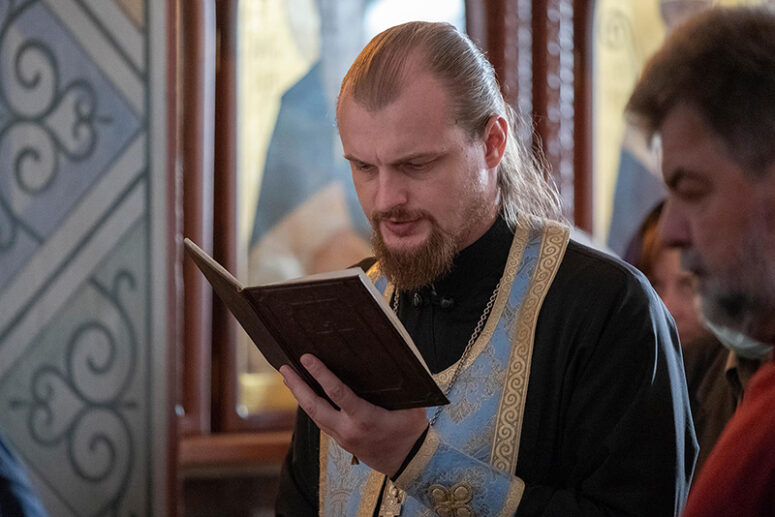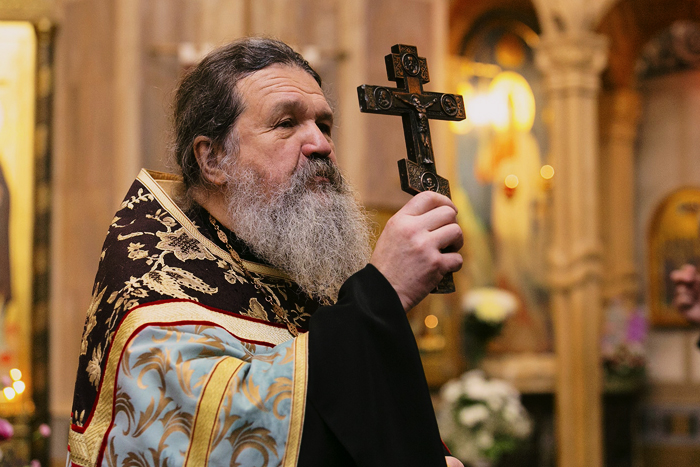
Question: Greetings! Here is my question: why did men take it upon themselves to let the priest complete the prayer “Lord our Father” that Jesus, God’s anointed, had taught His disciples? Does the word of our Lord (see Revelation 22:19) mean anything to these men? Do not they agree that all the glory is for the Lord and no man may dare to claim it? Amen.
Answer: May God bless you!
Greetings! I understand that you are referring to the lines “for Yours is the glory and the power of the Father and Son and the Holy Spirit – then, and now, and forever.” These words were absent from the original text in the Gospel of Matthew, but eventually became a part of the prayer cycle.
This addition was not anything extraordinary. The prayer “Lord Our Father” has been said by Christians of all times, both in private and in church prayer. In the early Christian period, it was the custom to glorify the Lord at the end of every prayer. The gospels were copied by hand, and the scribes often left notes on the margins that explained the meaning of the verses. Subsequent scribes could copy the note if they found it appropriate and meaningful. Contemporary scholars of the bible who have studied the historical copies of the scriptures found several fragments of New Testament text added by these scribes. They do not distort the scriptural text but explain and clarify it. They are no longer considered to be the work of these individuals – they have now been accepted by the whole Church. The final lines to which you referred in your question appeared in the Lord’s prayer in the same way. They were added by the Church in the Gospel of Mattew as a common conclusion of a prayer.
Here is some historical evidence of the use of this glorification. Already in the second century, the faithful added to the Lord’s prayer the glorification “To you be the power and glory forever” (Didache 9:2). In the apostolic constitutions of the third and fourth centuries, the faithful are instructed to complete the Lord’s prayer with the words, “For Yours is the glory and the power forever. Amen.” These words are found in the concluding lines of the Lord’s prayer in the Gospel of Mark. In his fourth-century homily on the Gospel of Matthew, Saint John Chrysostom wrote with confidence that these words belonged to the Saviour; yet Origen does not make a single mention of them in his comments on the Lord’s prayer a hundred years earlier.
In his Orthodox Confession of the Catholic and Apostolic Eastern Church, Metropolitan Peter Mohyla wrote: “To underline the significance to the [Lord’s] prayer, the priest will say these words during prayer at Church. Where there is not a priest, it will be proper to say the same during public payer. No-one should say the Lord’s prayer separately from these words.”
In your question, you refer to this verse from the Holy Scripture, “And if anyone takes words away from this scroll of prophecy, God will take away from that person any share in the tree of life and in the Holy City, which are described in this scroll.” (Revelation 22:19). No words are being added or taken away from the prophecy in this case. With the words “for Yours is the glory and power of the Father and Son and the Holy Spirit – then, and now, and forever”, we only reaffirm the supplications of the Lord’s prayer. We do not add or take away from it.
In this context, let me also recall what the Lord said to His Disciples as representatives of the Church, “Truly I tell you, whatever you bind on earth will be bound in heaven, and whatever you loose on earth will be loosed in heaven.” (Matthew 18:18).
Translated by The Catalogue of Good Deeds
Source: https://foma.ru/kto-reshil-chto-otche-nash-mozhet-dogovarivat-tolko-svjashhennik.html




